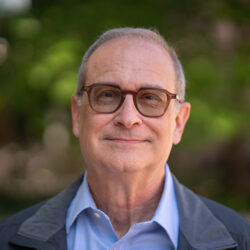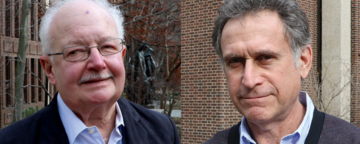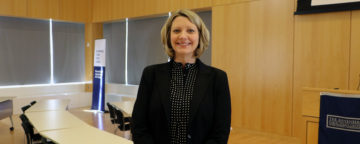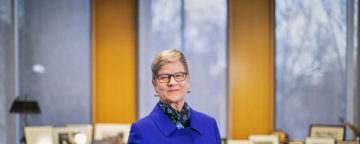The Annenberg Public Policy Center and Penn Law’s Center for Ethics and the Rule of Law have formed an alliance to promote and strengthen the rule of law in democratic institutions, the two Penn policy centers announced.


Michael Rozansky has worked as an editor, writer and reporter for 30 years. Before joining the Annenberg Public Policy Center as director of communications, he spent more than 20 years at the Philadelphia Inquirer, most recently supervising its arts and entertainment coverage. He has reported on the arts, media, business, politics, national and regulatory issues. Rozansky also developed and taught a class at Temple University on the history and practice of celebrity journalism. He received a bachelor’s degree in English and American literature from Brown University and a master’s degree in journalism from Columbia University’s Graduate School of Journalism.

The Annenberg Public Policy Center and Penn Law’s Center for Ethics and the Rule of Law have formed an alliance to promote and strengthen the rule of law in democratic institutions, the two Penn policy centers announced.

Misleading videos about tobacco use are widespread on YouTube, where views of popular pro-tobacco videos have soared in recent years, a study from the Annenberg Public Policy Center finds.

FactCheck.org has brought on two experienced journalists to increase its 2020 campaign coverage, especially in swing states, and intensify efforts to debunk online deception.

People who rely on social media for information were more likely to be misinformed about vaccines than those who rely on traditional media, according to new research by the Annenberg Public Policy Center.

University of Delaware scholar Danna Young spoke at APPC about her new book, “Irony and Outrage: The Polarized Landscape of Rage, Fear, and Laughter in the United States.”

An updated Annenberg Science Media Monitor on retractions of scientific findings found just 38% of the articles analyzed indicated how the errors or misconduct occurred.

APPC Director Kathleen Hall Jamieson will receive the National Academy of Sciences' 2020 Public Welfare Medal for her nonpartisan crusade to ensure the integrity of facts in public discourse.

Contrary to a 2019 study, a data reanalysis found no evidence of an increase in adolescent suicide rates after the release of Netflix's "13 Reasons Why."

In an effort to increase public understanding of the scientific process, the Annenberg Science Media Monitor has published reports seeking to improve science reporting in the news media.

In its fourth report, the Annenberg Science Media Monitor focuses on media reports about crisis and self-correction in science and efforts to address them.